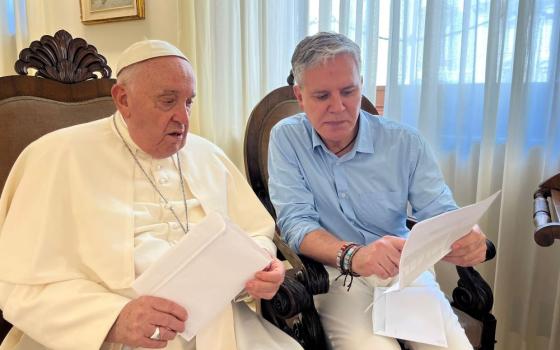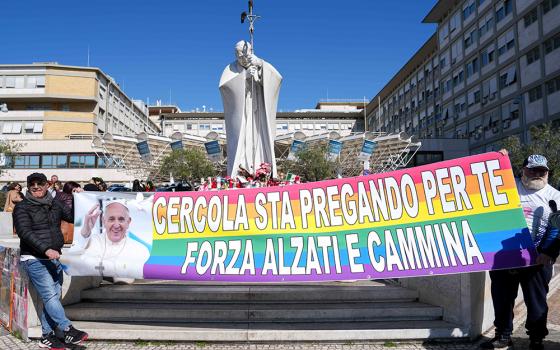The need for changes in seminary formation is critical. Young priests are being turned out with little or no understanding or acceptance of the direction the church is moving under Pope Francis. The Association of U.S. Catholic Priests provides a welcome contribution to an important discussion. They have argued for a number of changes to the conduct of seminary formation. I agree with most of what they suggest in their statement.
As a seminarian from the '60s, I believe I have something of a unique perspective on the issue. I was in the seminary for seven years, and in that time was part of a pre-Vatican II regimen, and the transitional period of the days of the council and beyond.
The one piece that I believe was not sufficiently emphasized in the association’s statement is scholarship. In fact, at one point the statement seems to relegate intellectual pursuits to a less important category. The statement is critical of an abstract philosophical and theological program designed to turn priests into theologians rather than pastors.
I’ll talk more about scholarship later, but first let me say that I agree with the priests’ statement regarding the aspects of seminary education they highlight. Fidelity and emphasis on the Vatican II documents should be at the heart of seminary training. A pastoral model of priestly formation is essential. The need for young priests to see themselves as servants of God with better community connections is critical. A larger role for women in formation pretty much goes without saying.
It is also unfortunately true, as the document states, that too many young priests don’t focus on their role as servant. Instead, too often a distance or separation is created. There tends to be a sense of superiority, elitism, and worst of all, clericalism.
Yet, without a rigorous course of study, newly ordained priests will be ill equipped to operate effectively, whether they be of a conservative, liberal or moderate bent. The society in which they will be operating is well educated and expect more from their priests than the typical pablum they are often given.
I don’t know about you, but I am so tired of homilies that are essentially a repetition of the Gospel that has just been read. Yes, we know the sower sowed seed in good, rocky and weed-filled soil. And, yes, we all want to be good soil. But if that’s all you got, don’t waste our time.
I am not talking about a course of study that focuses on scholastic philosophy and reiterates church teachings in depth. No, seminarians need to have the opportunity to think and explore ideas and trends in the world and apply themselves to determining how the church can wisely engage with the world outside the church.
During my seminary days we, of course, had professors who were stuck in the 16th century and had little to offer, but we were challenged by other professors to think and consider the world of ideas and what it meant for energizing the church and making it a meaningful part of the world we live in. We explored existentialism, Dietrich Bonhoeffer, Martin Buber, etc. Some of us found ourselves making that giant leap of faith with Kierkegaard.
Advertisement
We examined critical scholarship on the Scriptures and learned how a realistic understanding of the Scriptures enhanced, not threatened, our Christian faith. It’s time the Christian faithful also be given insight into the Jesus of the Gospels and the emergence of Christianity over time. They can handle it. They will have their faith strengthened rather than secretly wondering whether Jonah was really swallowed by a whale. We need to educate not only our seminarians, but the faithful as well.
Sixteenth century categories and formulations are no longer useful in explicating the faith to the faithful. Yet, unless they are replaced with solid theological and scriptural insights, we really have nothing to offer those seeking to understand their faith.
Considering the dry and unimaginative way both philosophy and theology have been taught too often in seminary programs, it is no wonder that priests who have experienced such education find it irrelevant to their work as parish priests. They are wrong. Our parishioners expect their priests to be educated, to be able to speak intelligently about what is going on in the world and what impacts them day to day. Lacking knowledge is not the characteristic of a good pastor. One cannot be an understanding pastor if one is fed rigid rules and characterizations of the faith, but neither can one be a caring pastor if he/she doesn’t know what he/she is talking about.







